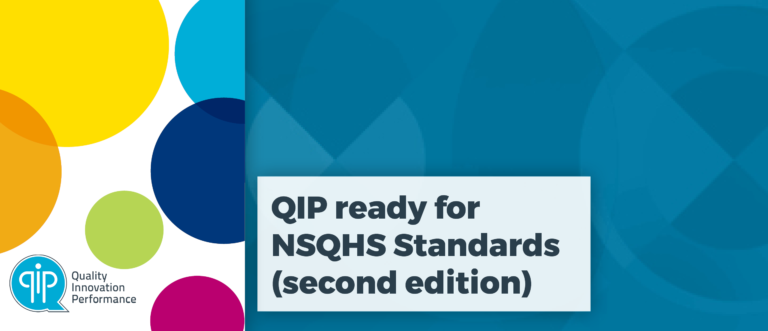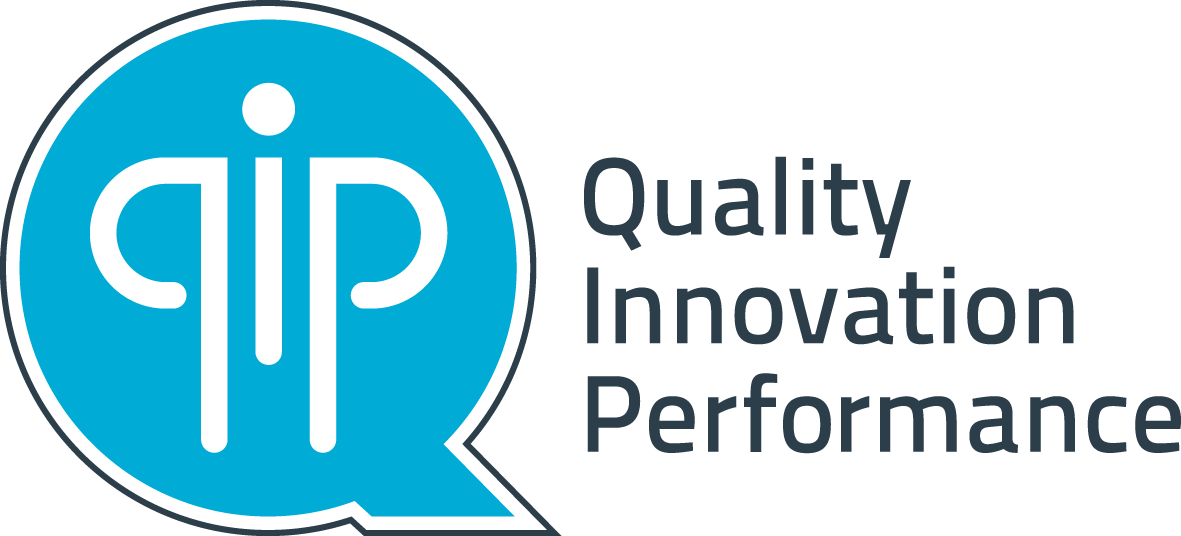Latest news

QIP ready to support accreditation against NSQHS Standards (second edition)
The Australian Commission on Safety and Quality in Health Care (the Commission) released the second edition National Safety and Quality in Health Services (NSQHS) Standards in November 2017 and assessments against the Standards commenced 1 January 2019.
As one of only a few accreditation agencies approved to assess against the revised NSQHS Standards, QIP has been readying to ‘hit the ground running’ to ensure the best possible outcomes for clients to transition to the second edition Standards and revamped assessment process.
Who needs to implement the NSQHS Standards (second edition)?
In Australia, as mandated by the Commission, all hospitals, licensed day procedure services and the majority of public dental services are required to achieve accreditation against the NSQHS Standards*. A number of health service organisations across Australia—including those such as allied health service providers and private dental practices—voluntarily implement and assess against the NSQHS Standards. Accreditation against the NSQHS Standards supports these health service organisations to provide consumers with credible assurance of high-quality care and safety processes, and that effective risk management and continuous improvement is built into their governance and operational systems.
What are the key changes between the first and second edition NSQHS Standards?**
While the overarching aim of the second edition Standards remains unchanged from the first—to protect the public from harm and improve the quality of health service provision—the Commission advises that intended purpose of the second edition is to make them easier to understand and implement. However, reflecting the principles of a continuous quality improvement journey, the bar for assessments has been raised.
The second edition addresses important gaps identified in the first edition including mental health and cognitive impairment, health literacy, end-of-life care, and Aboriginal and Torres Strait Islander health.
The second edition is also clearer than its predecessor with duplication reduced through consolidation of relevant standards and actions. The second edition comprises a more streamlined eight standards and 148 actions compared to the first edition’s ten standards and 256 actions.
Other key changes include:
- Standardised assessment cycles—all health service organisations will move to a three-year assessment cycle (no four-year cycles) and no requirement for mid-cycle assessments
- Flexible transition arrangements to three-year cycles and special transition arrangements for assessments taking place in 2019
- Repeat assessments for organisations with large number of ‘not met’ actions and additional assessments for services where safety and quality data show there is underperformance
- Revised assessment rating scale
- Recognition of exemplar practice in health service organisations
- Voluntary short notice assessments
- Annual compliance attestation statement from health service organisation’s governing body
- Expanded oversight of accrediting agencies by the Commission
- A more structured, standardised assessment process, and
- Reduced duplication and improved usability with the first two standards, Clinical Governance and Partnering with Consumers Standards, combining to form the clinical governance framework for all health service organisations.
The eight NSQHS Standards (second edition)
While assessment takes place at the ‘action’ level, the eight overarching Standards comprising the second edition are:
- Clinical Governance
- Partnering with Consumers
- Preventing and Controlling Healthcare-Associated Infection
- Medication Safety
- Comprehensive Care
- Communicating for Safety
- Blood Management
- Recognising and Responding to Acute Deterioration
The Commission has also released a suite of Clinical Care Standards designed to play a key role in defining the care patients should be offered for a specific clinical condition in line with current best practice, regardless of where they are receiving treatment, within Australia.
Each Clinical Care Standard, in conjunction with guidelines on which it is based, should contribute to improvements in care outlined in the NSQHS Standards (second edition).
How can QIP help you?
With our expertise and experience in the NSQHS Standards, we welcome queries from health service organisations across Australia that may be interested in achieving accreditation against the second edition Standards with QIP.
QIP’s dedicated support team and expert assessors have undertaken ‘second edition’ training and are ready to assist health service organisations prepare for and transition to assessment against the revised standards.
The streamlined support and resources we bring to the accreditation process enables your staff to remain focused on delivering and improving on quality care and safety. By working with QIP, you can be assured that we will partner with you to, together, continue to uphold and be part of one of the safest health systems in the world through continual improvements in safety and quality.
For enquiries or more information, contact our National Development Team—telephone 1300 888 329 or email info@qip.com.au.
*Private health service organisations may have additional state/territory mandated standards to be assessed against—relevant health departments can confirm.
** This information is drawn from the Commission’s ‘Welcome to the NSQHS Standards’ website. QIP urges all health service organisations to visit the Commission’s website to review and download the Standards and carefully read the comprehensive information, advisories and fact sheets provided.



